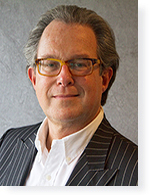By Andrew Morris, CEO, Academy for Chief Executives
Through coaching and mentoring countless business leaders, I’ve observed several common characteristics emerging. One of these is that most leaders, like most people, are insecure. More interestingly, many business leaders are still trying to prove, or disprove, something to their Dad.
Writing in the Guardian last month, footballer Michael Owen revealed that the driving force behind his desire to become a professional player was his father, Leslie Owen, who played as a professional for 15 years in the lower leagues. “Being guided by a father like mine made it hard to fail,” he wrote.
“My motivation was to please my dad. He was, and still is, my hero. Putting in a good tackle, making a nice pass or scoring a great goal meant nothing in isolation. Taking a sneak peek behind the goal to where Dad was standing and being acknowledged by a nod or a wink of approval meant the world.”
But fathers can influence us in different ways, too. Perhaps we feel our Dad was a bit of a loser and we’re desperate not to repeat this with our own life. Or our Dad was a great success and we feel lost in his shadow. Or perhaps he never gave us enough time or respect of praise. Perhaps he was absent or died when young and (there is a high correlation with entrepreneurs and absent Dads) left a feeling of abandonment or insecurity.
These feelings often lead to a compelling drive to succeed. On City trading floors where only peak performance – every day – is acceptable, they recognise this as “Dead Dad Syndrome” and apply it. Many of the best traders have lost their Dads and when this emerges at the interview stage, it is seen as a positive advantage. As a result they tend to be the most focussed the most intense and the most successful.
It’s interesting to note, too that Dad’s have a huge influence over their children’s careers whether it is a daughter or a son. According to a 2009 study from the University of Maryland, women are three times as likely to follow in their father’s career footsteps these days than they were a century ago: Only six per cent of women born between 1909 and 1916 went into their father’s business, compared with roughly 20 per cent of Gen X and Y.
If your Dad is still around, I hope he gives you the praise and support you need, both as a parent and as a mentor. If he’s passed on, I hope you have fond memories of your relationship. And if you have children, don’t forget how much they crave your time, your love and your appreciation and that you are their biggest teacher.
